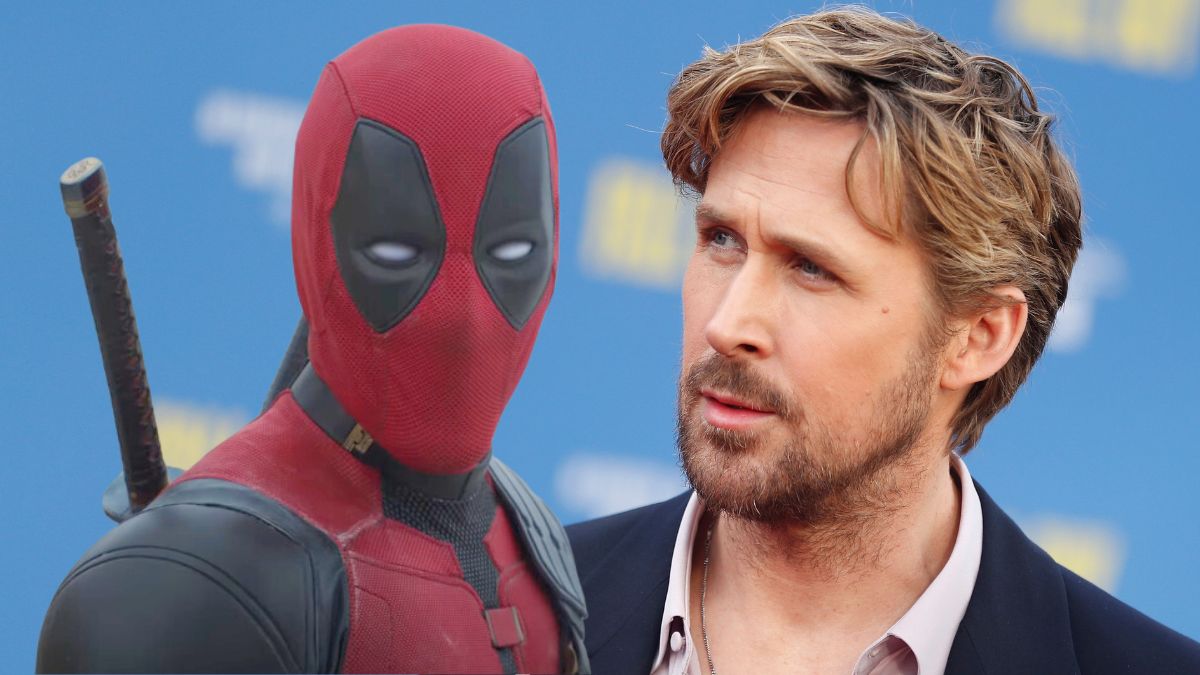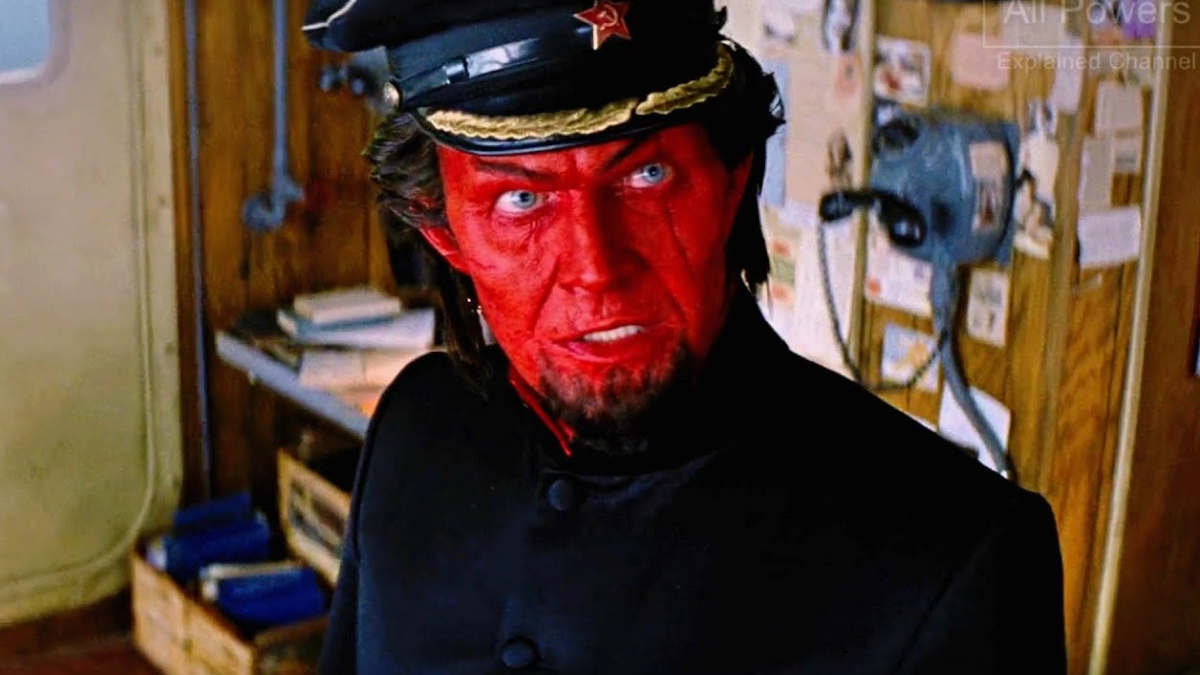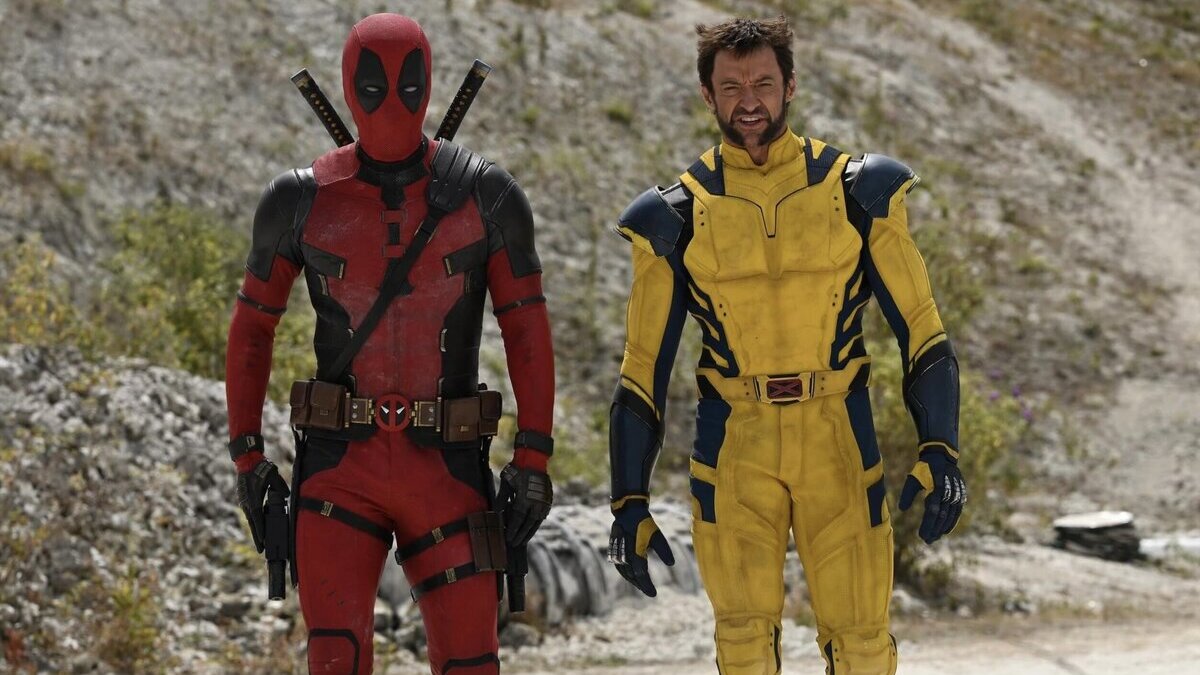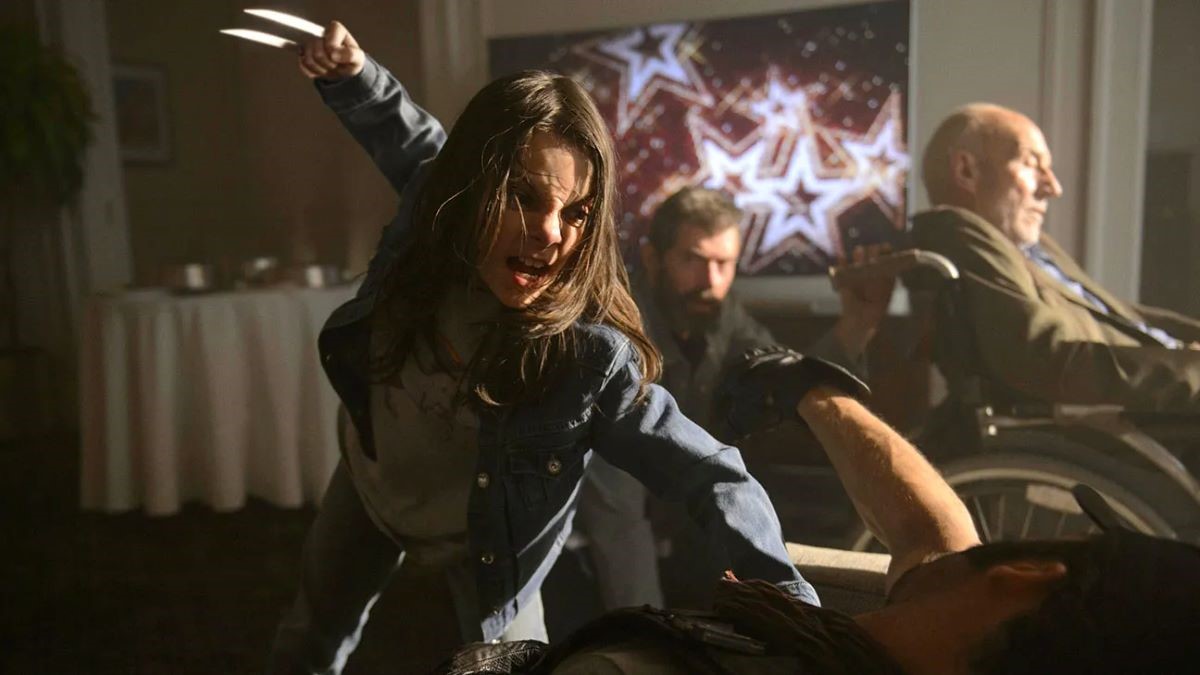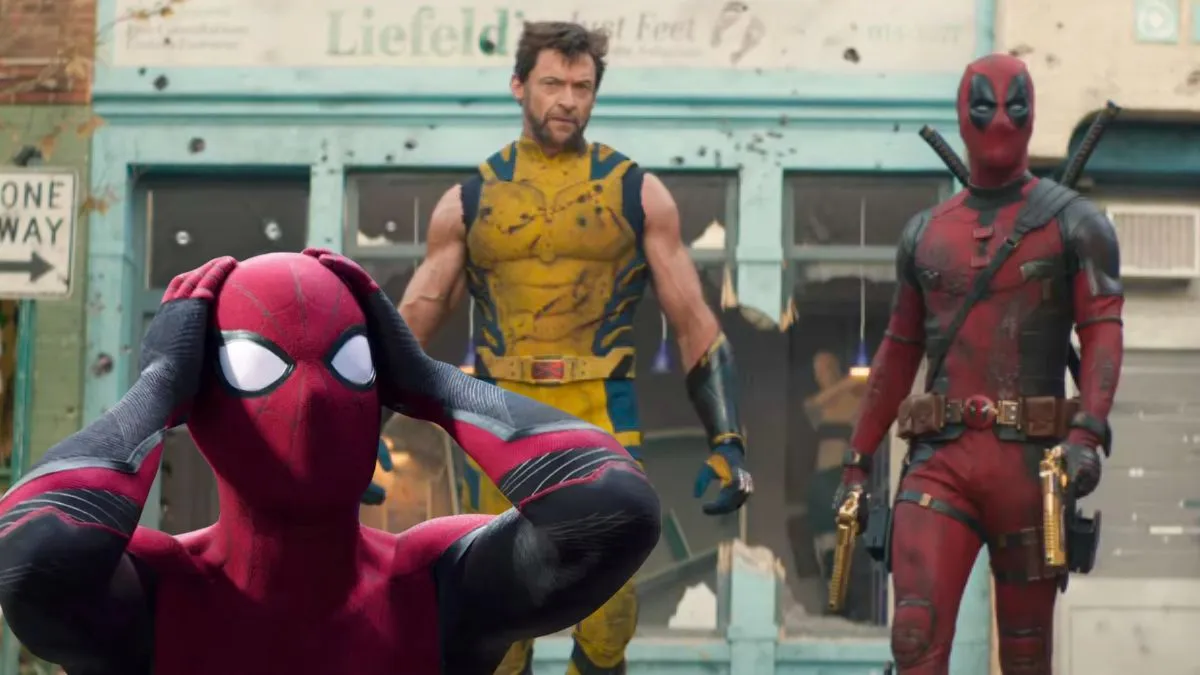
When I first saw Matthew Vaughn’s Kick-Ass back in 2010, my initial reaction was fairly lukewarm. I liked the cast and I mostly liked the film’s unique kind of energy, but I felt baffled by the entire affair, and in my review expressed the opinion that for a film whose supposed purpose was to explore the notion of superheroes in ‘real life,’ it became too silly too fast. I sounded, in short, like the Graham Chapman ‘General’ character from Monty Python’s Flying Circus, with the kneejerk reaction of “Nope! Nope! Too silly!”
The film stuck with me after seeing it, however, and the more I thought about it, the more I felt engaged with the material, and the more I started to understand what Vaughn and his team were going for. This wasn’t ‘superheroes in real life,’ but ‘real life conforming to the insanity of superheroes,’ a dark and creative satire about how the mere notion of costumed vigilantism is psychotic, related through a fantastical story in which that psychosis, once introduced to something resembling ‘reality,’ turns reality into something absolutely bats*** insane. And seeing that as the film’s primary thematic thrust, I was able to revisit and greatly enjoy it. I think Kick-Ass has been unnecessarily deified in the years since its release, but Vaughn had a clear and compelling vision, executed that vision extremely well, and created something that is both remarkably substantive and raucously entertaining.
Suffice it to say, the same cannot be said for Jeff Wadlow’s Kick-Ass 2, a film that, unlike its predecessor, I like less and less the more I contemplate. There are some pleasures to be had here – 90% of them surrounding Chloë Grace Moretz and her breakout character Hit-Girl – but on the whole, Kick-Ass 2 is incredibly messy, a film without any clear sense of what it wants to be. It may not have hit me in the moment, but the closer I examined Vaughn’s Kick-Ass, the easier it became to see how it all tied together, and an overriding interpretation was both simple and fulfilling to find. Kick-Ass 2 just bursts apart at the seams if you try to poke at it in any intellectual or even emotional way, however, and that, to me, is the most disappointing thing about it. Wadlow has decently recreated many of the surface pleasures of the original, including copious amounts of bad language and graphic violence (even if both are significantly tamer this time around), but without any unifying thematic identity, the entire exercise seems pointless.
Narratively, the film is pretty lightweight, and one of the strangest choices Wadlow makes is to structure it like a second origin story. Protagonist Dave (Aaron Taylor-Johnson) has, since the first film, retired from being Kick-Ass, but he chooses to re-don the suit at the start of this sequel, sneaking out of school every day to train with Hit-Girl, and eventually joining a growing team of costumed vigilantes, led by the reformed mobster Colonel Stars & Stripes (Jim Carrey, who does fantastic work and is given far too little to do). While that team gets off the ground, another narrative thread sees Chris D’Amico (Christopher Mintz-Plasse) assuming the identity of ‘The Motherfu**er’ – the world’s self-proclaimed “first supervillain” – and forming a team of his own to torment and kill Kick-Ass for killing his father at the end of the original movie.
And for the most part, that’s the movie – Kick-Ass hangs around with his team, the Motherfu**er whines and mopes around in narrative circles with his lackeys, and eventually, late in the film, they fight. It is, in essence, an origin story for both, and while that is not an inherently bad direction to explore, it is certainly an odd one for a sequel – which should, in theory, be able to dispense with establishing material and just get down to business – and makes this film feel only occasionally connected to its predecessor (parts of which, like Chris becoming the Motherf**er, it simply ignores and repeats in a different way). There is a visual gag at one point in which Dave wears a shirt declaring “I hate reboots,” and while I am sure that is intended as a clever nod to the repetitive state of superhero cinema, it instead read as uncomfortably meta to me, because even as Kick-Ass 2 has selective continuity here and there with its predecessor, it feels on the whole like a wonky re-start to the brand.
The only part of the movie that truly feels like it is actually moving forward from and building off the original is the material involving Hit-Girl, now trying to live a normal, high-school life as Mindy Macready. Her arc in the film extends directly from the emotional conflict of her father’s death in the previous feature, and thanks in part to that pre-existing character foundation, her emotional journey here is the only one I can even feel partially on board with. There are bumps aplenty in her narrative road as well – Mindy gets wrapped up in a broad parody of cutthroat high-school girl culture, and while the material is often funny, it is also aggressively sexist in ways that are never thematically justified – but on the whole, the Mindy side of the film works, thanks in no small part to Moretz’s spectacular performance. She may be giving the film a hell of a lot more than it deserves, but Moretz is nevertheless on fire here, doing even sharper, more compelling work than she did the first time around, and while I usually refrain from suggesting a ‘scene-stealer’ get their own movie, I have to wonder if simply making a Hit-Girl spin-off would have been a better option. With her, the film has a focus, energy, and vision that, while imperfect, does not exist anywhere else, and given that Moretz is unquestionably the secret ingredient that holds Kick-Ass 2 together, there is no doubt she could sustain her own starring vehicle.
The problem is that outside the Hit-Girl material – which leads to a resolution that is poorly handled in terms of tone, but is at least arrived at organically – Kick-Ass 2 is thematically all over the map, never nailing down one particular approach, interpretation, message, or overriding emotional thrust. Wadlow’s script is simply whatever it wants to be at any given moment, and changes its thematic intent with each passing cut, especially in regards to how it actually views the costumed vigilantes. Is the film celebrating the value of being true to oneself? Is it exploring outcast culture? Is it defending the idea of ordinary citizens taking the law into their own hands? Is it saying vigilantism is wrong and therefore destructive? Tonally, is it earnest in its love for the characters or slightly taken aback by their relative psychosis? At various points, the answer to each of these questions is ‘yes,’ and at other times, it is ‘no,’ and while there are stray moments that work decently here and there, for the most part, trying to find anything of substance is a confusing and off-putting venture.

What bothers me the most, honestly, is how earnest much of the film feels. It is an odd complaint to make, but I think a large part of what made the first Kick-Ass work is that it let these insane characters be secure in their own identities without glorifying them. For instance, we could both laugh at and be disturbed by Nicholas Cage’s Big Daddy because the film positioned itself from a stance where we were not being asked to view his behavior as healthy; if we were, it would suddenly be a lot harder to find anything he did amusing, because there is no level of reality, no matter how outlandish, where what he does is acceptable or relatable. In short, the film was honest about its characters, but not overly earnest in asking us to love and cherish them. Kick-Ass 2, on the other hand, seems to mostly believe – with the exception of those moments in which it doesn’t – that we should love and cherish these characters and their life choices. There is a lot of talk of ‘doing good’ and ‘being true to yourself,’ all presented in the most earnest way possible, but nearly every note therein rings false, because the behavior the superheroes commit – violent, brash, and destructive – is still fundamentally disturbing. And if the tone is earnest and celebratory, the disturbing nature of those acts paradoxically overwhelms the material.
Hit-Girl is the clearest example of this. Her arc concludes (minor spoilers here) with her choosing to continue being Hit-Girl, because while she has tried living a ‘normal’ teenage life, she knows that, in her heart, she will always be the superhero her father raised her to be. Now, for the character as we know her, that is obviously the right place to take her, because anything else would be a clear betrayal of the character as established. But the note still rings false because tonally, the film acts as if this is the healthiest, sanest, more admirable thing she could ever do, and that, to me, undermines what is interesting about the character. Hit-Girl is not healthy. She is insane, fundamentally broken from the ground up, and the character is compelling due to the contrast between how the audience sees her and how she sees herself. When the film presents her emotional journey in such forced, earnest fashion, however, it does not allow for that contrast – Hit-Girl is made normative relative to the tone of the picture, and that is a fundamental misunderstanding of why we find the character fascinating in the first place. She is made both more disturbing – if the film is not acknowledging her actions as such, than the burden is left entirely on the viewer – and less unique, because an archetypal tone and arc are being applied to someone who is supposed to be non-archetypal.
The problem applies to every character in the film – I really do not care about Dave/Kick-Ass in the slightest if I am to view his actions as legitimately heroic and not immature or misguided – and combined with the lack of thematic focus, Wadlow’s screenplay feels like a very rough, very rushed first draft, one where lots of ideas are thrown at the wall, some good and bad, but each is in search of an overriding arc and structure. These are the kinds of problems that could get smoothed out with rewrites and reevaluations, but as it stands, the screenplay is an absolute, unmitigated mess, and so it goes for the rest of the film.
Nowhere is this more apparent than with the Motherfu**er, who is not only poorly integrated into the rest of the film, but whose material falls totally and completely flat at every turn. I don’t understand the structure of having him mope about with his assistant (a waste of the very funny John Leguizamo) and cohorts for the entirety of the first two acts, only to start actually doing things near the end of the movie. The perfect springboard exists coming out of the first film – where Chris swears vengeance and assumes this identity – so why backtrack so far and then wait so long to do anything with the character? There is no sense of urgency or threat to the film, because the Motherfu**er is largely a non-entity, and even when he and his team do start taking action, I find nothing about them legitimately threatening, funny, or interesting. And because I have no emotional investment in (or understanding of) the villains – negative, complex, or otherwise – the violent atrocities they wind up committing uniformly feel empty and exploitative, cheap attempts at shocking the audience rather than organic steps in the arcs of the characters. There is one joke in particular I just found grossly offensive, not only because it was built around the threat of rape and violence directed towards women, but because it did nothing to make the Motherfu**er pop any more as a character. That was one of the primary functions of humor and violence alike in the original Kick-Ass – making these characters stand out as unique, well-defined individuals – but here, the violence is often just brutal for the sake of brutality, and the humor lewd for the sake of lewdness.
I really do wonder if Kick-Ass can work cinematically without Matthew Vaughn, who was able to connect all these disparate elements into something cohesive, and who has a particular command of tone, character, and style that allows for the outlandish to operate with intelligence and impact. I am not familiar with Wadlow’s work, but I don’t think his voice as a writer works for the Kick-Ass universe at all, and his direction is even poorer. While Kick-Ass 2 was produced on the exact same budget as its predecessor – $28 million – the sequel looks spectacularly cheap, with lazy, poorly-lit sets and action sequences that almost always feel severely compromised, as if they want to be several times larger in scope. Vaughn could stretch a budget – Kick-Ass was not humongous in scale, but never felt anything less than thoroughly polished – while Wadlow struggles to even make the movie look professional at times.
In any case, Vaughn’s touch is sorely missing across the board, and while Wadlow has not made a horrible sequel in his stead, I think it is safe to say the world does not need any more Kick-Ass without the original production team in place – if we ever needed more Kick-Ass at all. I never thought the original called out for a sequel in any way, shape, or form, but if we were to get one, I would have liked something much, much better than this hollow, confused shell of the original.


